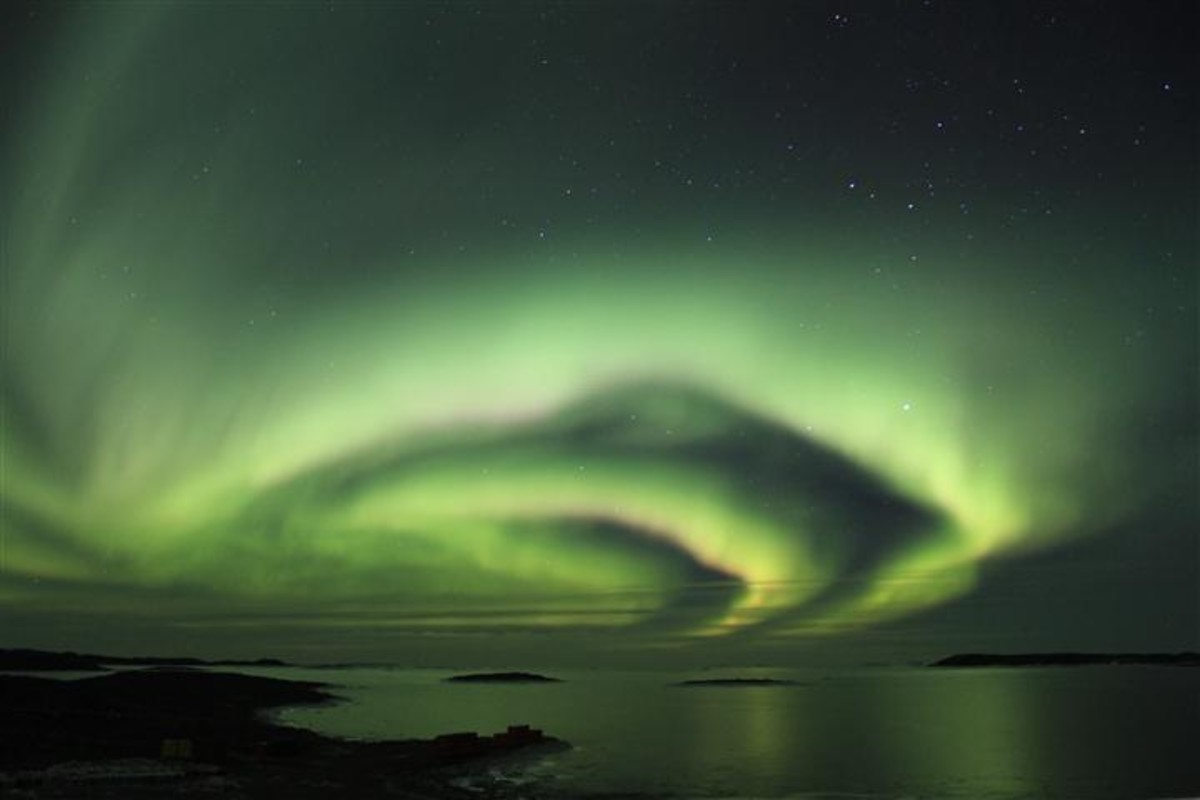Finding Your Own Beach
There are lots of nice beaches out there, from Miami to Panama City to Malibu to the islands of Fiji, but the problem with these beaches that everybody knows about is that everybody knows about them. Many of us go on vacations to relax, and sitting rear to rear with other tourists on a beach somewhere while paying extortion level prices on everyday items like water and beach umbrellas is not everyone’s idea of a wonderful time.
But never fear. Just look at a map of the U.S. There are thousands of miles of oceanfront that aren’t in cities, so not only can you find a beach to yourself, it is actually a relatively easy process. In this article I will be giving tips on how to find your very own beach. However, I will not be divulging any of my very own beaches, because they are mine and top secret! You can find your own! You are welcome to try to guess from the photographs, but even if you guess right, I’m not going to confirm it.
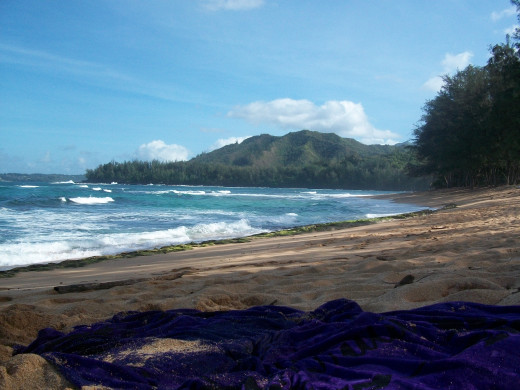
Tips for Finding a Beach of Your Own
The following are just a few good methods to find your own beach.
Internet Search:
When one is using the internet to look for a beach that isn’t populous, it is good to look for certain terms. A few of these terms are “rustic,” “natural,” “primitive,” and “secluded.” Other things to take note of are the populations of the communities where these beaches are located. Believe it or not, some of the most beautiful beaches I have found on my many excursions are in towns of less than 2,000 people.
When looking for lodging, you absolutely want to avoid resort settings. I have done the resort experience before, and I know some of you out there love them, but I hate them with a passion. Let me explain why. Inevitably they charge you for extra services. Sometimes they let you know and sometimes they don’t. For example, they’ll quote you a price for a room only to add a fee on top of it, such as a fee for their exercise room, whether you have any intention of using the exercise room or not.
You go out and sit on one of their beach chairs only to realize they charge $20 dollars a day to use them, something they don’t bother telling you until you’ve already been there a few hours. They boast a “private” beach. Yes, the purpose of this article is to help you find a beach of your own, but oddly enough, in doing this you want to make sure to avoid beaches labeled “private.”
What a private beach means is that the resort has bought a small area of beachfront, piled rocks twenty feet high on either side of it, and expects you and the thousand other guests to make do with it. On top of this, since the beach is not public, the resort is liable for mishaps that occur on it. This means rules on top of rules on how the guests can use this private beach. Rules you can expect to see: no going out on the beach at night, no glass beverage containers, and it goes without mentioning that you can’t have a little fire to sit around.
If you haven’t done it before, one of the most enjoyable experiences one can have on a beach is to sit with someone who is special to you at night, have a small fire of driftwood going, and a cool beverage in hand. I don’t know about you, but my favorite beach beverages come in glass.
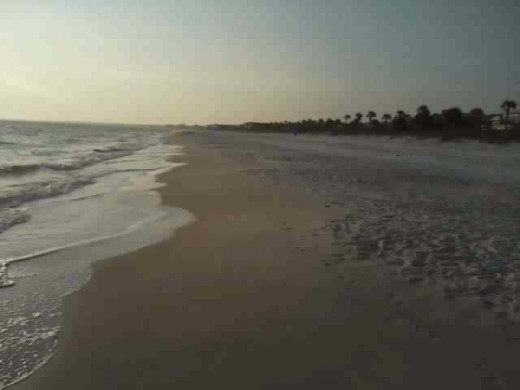
If you plan to fish the ocean, a hook remover is a good idea. Many sea fish have sharp teeth.
Resorts are also anti-exploration; what I mean by this is that they go out of their way to make it hard to leave. They try to convince you they have everything you need right there, while they charge inordinate prices for average food and other services that can be found at a more reasonable price and performed by more qualified individuals at places nearby, and they have so successfully walled themselves off from other communities that it is hard to get anywhere else.
But I digress, and in truth I could write an entire article about just why you should avoid resorts, but to sum things up, if you want to spend lots of money to be walled up for your whole vacation, price-gouged, and have a room with a bed in it that looks basically like any other room with a bed in it, be my guest, but unless you are staying somewhere that has a criminal element, like areas of Mexico or South America, I can’t see the point.
In trying to find your own little slice of heaven on the beach, the lodging you should look for is that which is cheap, on the ocean, and has a bunch of stars by it and positive reviews. In small communities this is usually a standalone cottage or house. A small cottage that sleeps two in a non-populous community with beautiful beachfront will usually run between $50-60 a night. A house that sleeps 8 will usually run around $150 a night.

Just Drive:
Another really good way to find beaches you pretty much have to yourself is to just get down to a coast, drive along it, and look. Believe it or not, many sleeping accommodations near pristine beaches in small towns don’t require a reservation. It is always nice to have a reservation, but more likely than not, you will be able to find a nice place to stay without making one and at no extra charge.
I realize gas costs a lot of money these days, but driving along a coast gives you the opportunity to see how things look with your own eyes. Yes, the internet is a very helpful tool, but you never really understand how a place is laid out until you’ve been there.
Think of it this way: you're spending money on gas to find a nice place this one time, but if you find a special place, from then on you will know where it is at and can go there for the remainder of your life.
Ask People but Not Me:
Many people are foolish enough to divulge the location of these beautiful, secluded places on the sea without batting an eyelash. I suppose that is the friendly thing to do, but when I find such a place, I keep it to myself.
When trying to find a nice piece of oceanfront that the rest of the world hasn’t made note of yet, I would recommend getting multiple accounts from people to make sure this is the case. The reason for this is because if you ask me where to go, I will lie and talk up some place I only liked a bit in order to protect the quietude of the places I love. I wouldn’t rule out that many others are capable of such dirty tricks.
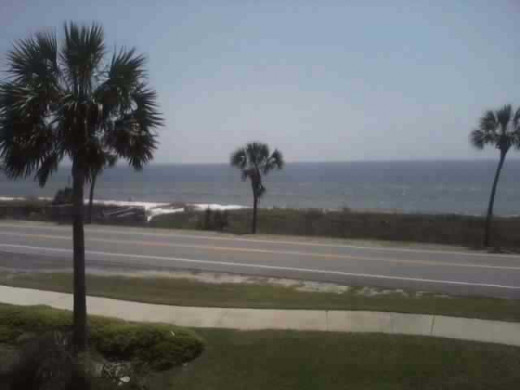
Walk It Out:
If you have the ability, walk things out. Don’t just stare out the car window. If you find a spot that looks promising, put one foot in front of the other and check it out for yourself. Part of the beauty of these small communities is that you can park your car and not deal with the stress of driving it again until you have to leave.
I know that walking isn’t everyone’s idea of relaxation, but in my book, it is one of the most relaxing activities one can do. On top of this, it has the added benefit of saving money and keeping your body healthy. Don’t spend your whole vacation cooped up in a car.
Preferences
What is your preference for a relaxing vacation on the beach?
Go in the Off-Season:
Many of us have children, and peak tourist season is the only time we can go on vacation, but if you have the freedom to go at other times, lodging is usually a little cheaper and crowds are a little more sparse. In addition, many of the areas near the southern U.S. coast are warm enough to swim at least 9 months out of the year. Personally I find April and May are good times to have a beach experience in these areas and avoid the crowds.
But that being said, many of these small beachfront towns never get particularly busy and prices don’t vary all that much from off-season to peak tourist season. This means you can still have a nice, private getaway on a budget regardless of the time of year.
Dining Tip:
Find places off the beaten path. Yes, sometimes restaurants right on the main drive are excellent, but keep in mind that in a tourist community you can't tell simply by the number of people eating there. On the other hand, a restaurant off the beaten path that is heavily populated by locals is almost sure to be excellent.
The One Major Drawback of Having a Beach to Yourself:
In the heading I said “major” drawback not because it is major to me, but I know it is major to many people. This drawback is shopping. If you like to shop, these small communities don’t usually provide much variety. Go to Miami or L.A. and there are tons of shops to choose from. Go to a small town, and there are usually just a couple of places that provide normal stuff at relatively normal prices.
Although I am not a major shopper, I understand the draw, but I would suggest that for the sake of relaxation it is worthwhile to have a non-shopping vacation from time to time and enjoy places like these.
I would also like to point out that this shopping drawback, in my experience, doesn’t extend to food. There are usually plenty of restaurants to choose from for a week’s vacation, and they are often superior to many of those in major cities. The prices are usually as low as one could expect, but they vary. The seafood is often so fresh and delicious that it is simply indescribable. It is something you have to experience for yourself.
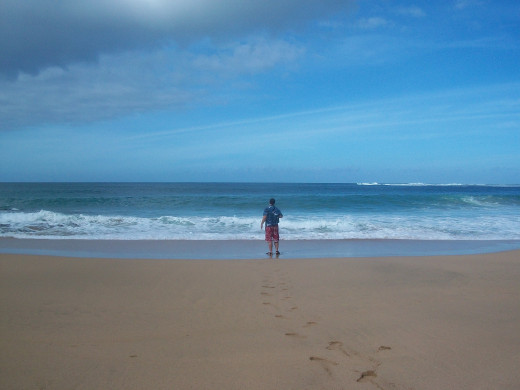
Conclusion:
I would like to end by reiterating that there are thousands of miles of coastline in the U.S. and hundreds of Islands just off our shores. No, I did not provide you any specific places to go, but I have given you a good blueprint to find these places on your own. There are thousands of beautiful, secluded beaches in this country that offer every kind of waterfront activity one could ask for. Half the joy is in their discovery, so get out there and find your own beach!
Pros and Cons of Vacationing on a Secluded Beach
Pros
| Cons
|
|---|---|
You can relax more
| Not many places to shop
|
You can walk everywhere
| Not as many non-ocean related things to do
|
You can often have the beach to yourself
| No lifeguards on duty
|
More freedom to do what you want
| |
Cheaper food, lodging, travel, etc.
| |
More romantic
| |
People are friendlier
| |
Less chance of being victimized by crime
| |
More free activities: parking, sharing food, etc.
|






